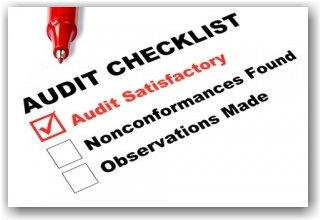Immigration Bill: Getting Ready for the BIG Reveal from the Senate
Tuesday, April 16th, 2013The proposal, which is expected to be officially unveiled this week is titled the “Border Security, Economic Opportunity, and Immigration Modernization Act of 2013.”
Sens. Chuck Schumer (D-N.Y.) and John McCain (R-Ariz.) — members of the bipartisan group that crafted the bill — will go to the White House today to meet with President Barack Obama about the immigration bill, according to a source familiar with the meeting.
The legislation would have a far-reaching impact on virtually every corner of the American economy.
In other compromises, the bill would reduce the categories of family members eligible for green cards, eliminating siblings of United States citizens and limiting sons and daughters of citizens to those under 31 years of age. It would eliminate a lottery that has distributed 55,000 visas each year. Those visas would be used to reduce backlogs of applicants elsewhere in the system. Republicans have sought to limit what they call family chain migration and to accomplish changes without increasing the overall number of visas.
Undocumented Immigrants
There would be two tracks: one based on the number of points immigrants could accumulate, with a fixed annual numerical cap, and another for immigrants who have been legally employed and living in the United States in good standing for 10 years or more. The second track would not have a cap. Formerly, undocumented immigrants would be eligible to apply for initial adjustment of status referred to as “Registered Provision Immigrant” (RPI) legal status following the filing of the Notice of Commencement of Completion by Secretary Napolitano (DHS) for each of the border security and fencing strategies. Only undocumented immigrants who arrived in the country before Dec. 31, 2011, would be eligible for RPI status. After 10 years, aliens in RPI status may adjust to Lawful Permanent Resident Status through the same Merit Based System everyone else must use to earn a green-card. They must also wait until all people currently waiting for family and employment green-cards have been cleared through the system.
The border security programs would be required to evidence a 90% effectiveness rate before any immigrants who have been here illegally would be able to apply for permanent resident green cards, achieving a series of border-security benchmarks that would require the Department of Homeland Security to spend as much as $5.5 billion over 10 years to increase enforcement and extend fencing along the Southwest border.
Undocumented immigrants would be ineligible if they have been convicted of a felony, aggravated felony, three or more misdemeanors, an offense under foreign law or unlawfully voted.
Undocumented immigrants who were deported for non-criminal reasons would be able to apply to re-enter the country if they are the spouse or parent of a child who is a citizen or lawful permanent resident, or they arrived during childhood and are eligible for the DREAM Act. People in DREAM Act Status and the Agricultural Program can obtain their green cards in 5 years and DREAM Act kids will be eligible for citizenship immediately after they get their green cards.
High Skilled Visas
The legislation would give employers in technology and science fields tens of thousands of new temporary and permanent resident visas annually, which they have been urgently seeking for tech workers and foreign graduates with advanced degrees from American universities. It immediately raises current annual caps on temporary high-skilled visas, such as H-1Bs, to 110,000 from 65,000, while adding 5,000 more of those visas for the foreign graduates. The cap would gradually rise to 180,000 annually.
Start-Up Visa
The legislation would create a “start-up” visa for foreign entrepreneurs who want to come here to establish companies that employ Americans.
Two New Guest Worker Programs
The bill also responds to the demands of American farmers and other employers of seasonal workers by creating two new guest-worker programs, one for farmworkers and another for low-wage laborers.
One major overhaul is the new classification for low-skilled workers. Called the W-visa, a new independent statistical agency is created — the Immigration and Labor Market Research Bureau — which is to be headed by a commissioner appointed by the president and with the consent of the Senate. The new bureau would get $20 million to devise a method to calculate the low-skilled worker visa cap, determine worker shortages, survey the unemployment rate of construction workers every three months and give annual recommendations on how to improve the programs. Employer fees and other fees for hiring undocumented workers will also be used to fund the bureau.
The number of low-skilled visas available starts at 20,000 in its first year, followed by 35,000 in the second, 55,000 in the third year and 75,000 the following year. Employers must hire W-visa holders at the same wage of other employees of similar experience, or at the prevailing wage. The bill also requires that companies have not laid off an employee 90 days prior to or after hiring a guest worker.
The program also singles out the construction industry, saying no more than 33 percent of the W-visa positions would be granted to the construction industry, capping it at 15,000 per year.
Mandatory Employer Verification System
A significant change for employers would be a mandatory employer verification system to check the immigration status of their employees. With a five-year phase-in period based on size of the business, employers would be required to certify that non-citizen workers presented a “biometric green card” that matches a photo stored in an e-verify system.
Highlights Regarding Legal Immigration
The bill repeals the availability of immigrant visas for siblings of U.S. citizens once 18 months have elapsed since the date of enactment; amends the definition of “immediate relative” to include a child or spouse of an alien admitted for lawful permanent residence; amends the existing category for married sons and daughters of citizens of the United States to include only sons and daughters who are under 31 years of age.
For Employment Green-Card Categories: The bill exempts the following categories from the annual numerical limits on employment-based immigrants: derivative beneficiaries of employment-based immigrants; aliens of extraordinary ability in the sciences, arts, education, business or athletics; outstanding professors and researchers; multinational executives and managers; doctoral degree holders in any field; and certain physicians.
The bill will allocate 40 percent of the worldwide level of employment-based visas to :
1) members of the professions holding advanced degrees or their equivalent whose services are sought in the sciences, arts, professions, or business by an employer in the United States (including certain aliens with foreign medical degrees) and
2) aliens who have earned a master’s degree or higher in a field of science, technology, engineering or mathematics from an accredited U.S. institution of higher education and have an offer of employment in a related field and the qualifying degree was earned in the five years immediately before the petition was filed.
The bill increases the percentage of employment visas for skilled workers, professionals, and other professionals to 40 percent; maintains the percentage of employment visas for certain special immigrants to 10 percent and maintains visas for those who foster employment creation to 10 percent.
For more on the bill, please refer to the 17-page Senate Outline referenced below.
In closing, the NY Times states:
“The senators are gambling that the bill will repair enough longstanding problems in the system to attract support from a broad array of groups who will benefit from those changes, including Latinos, religious groups and labor unions who support the path to citizenship for those here illegally; big technology companies like Microsoft and Facebook, which have been clamoring for more visas for engineers and computer specialists; agricultural growers and other employers in labor-intensive businesses; and immigrant families who stand to be united more quickly with family members coming here legally.”
Article Resources:







